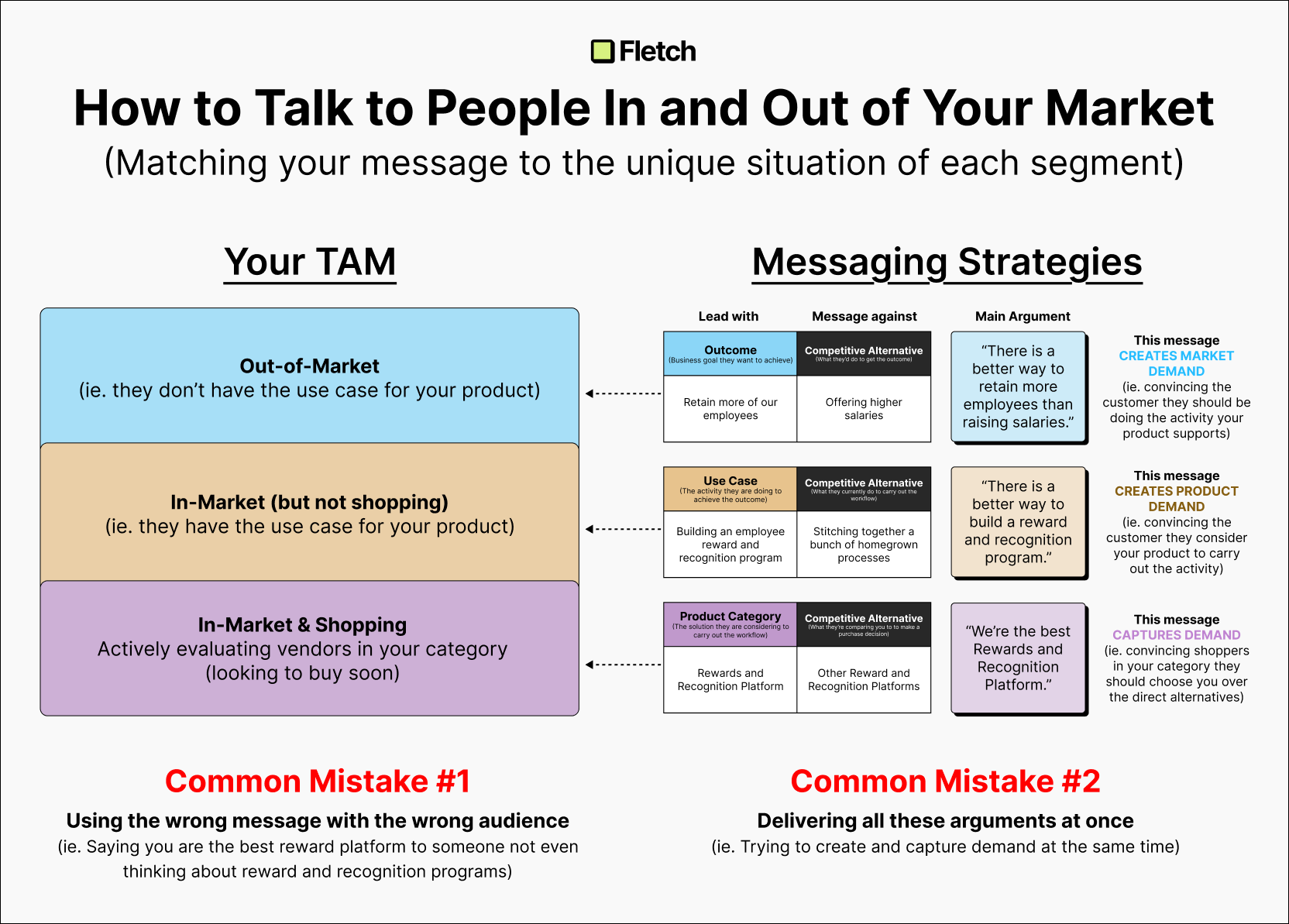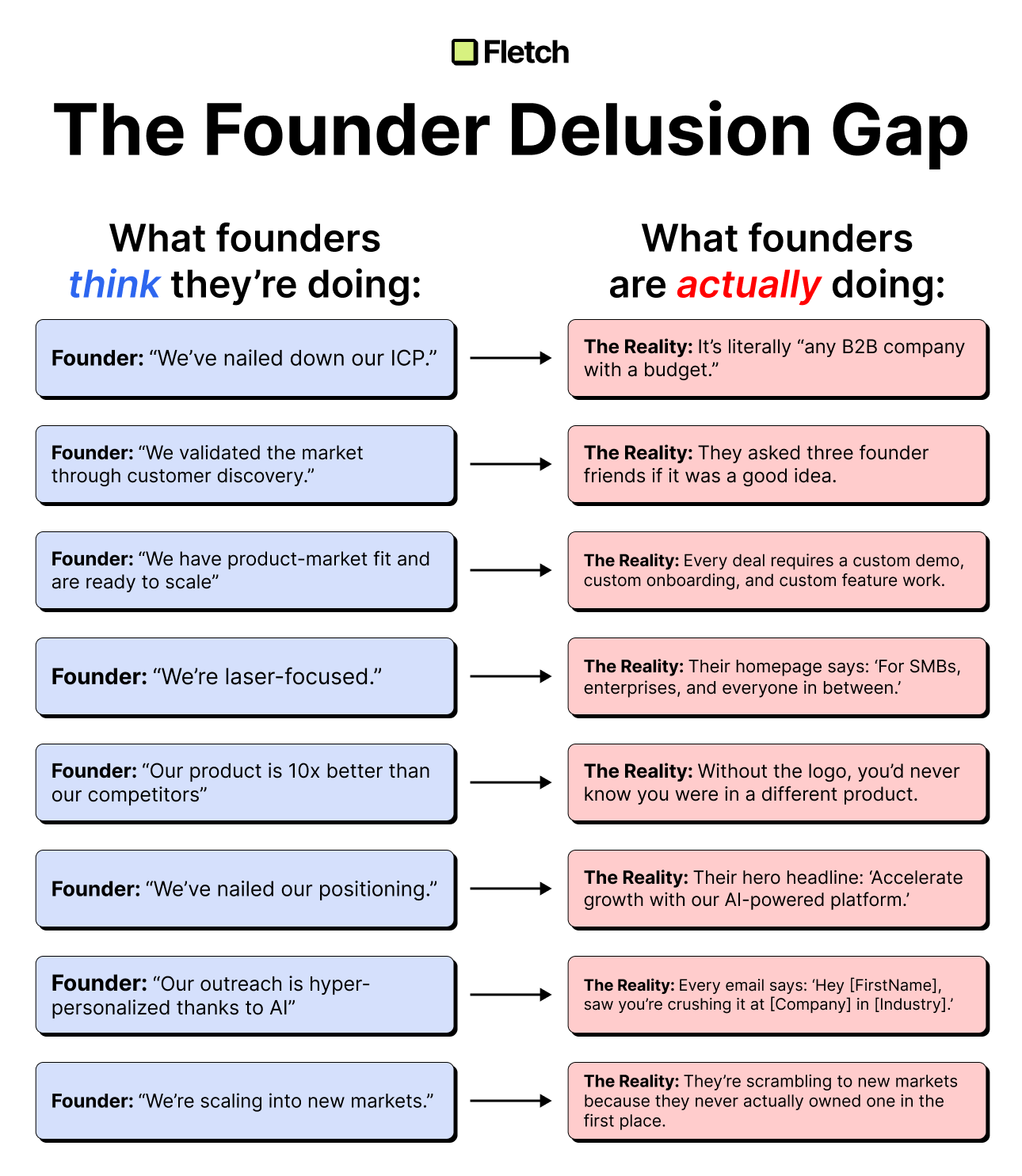Suite of Products vs. Platform

.png)
Every founder in B2B dreams of selling a huuuuuuge platform.
But this can be a huuuuuuge mistake.
The almost magnetic pull towards positioning as a platform makes sense:
✅ higher perceived value
✅ bigger ACV
✅ better customer stickiness
✅ greater investor appeal
But not all multi-product companies have the makings of a true platform.
Whether you position in the market as a platform or a suite of products starts way earlier in the startup journey — beginning with your product strategy.
(Yes, ideally your marketing strategy & product strategy should have collaborated since day 1... but they rarely do).
The normal flow goes something like this:
1) a founder creates a product that solves a problem related to a use case
2) customers come with adjacent use cases and say, "can you help us too?"
3) not wanting to turn away revenue, founders will say, "yes!"
4) each different customer segment has different needs
5) the founder starts building for all these different segments
6) suddenly, they're left with a collection of disconnected products
At this moment, the founder has two choices...
1️⃣ market & sell these products individually
2️⃣ attempt to combine them into one large platform
Because of the positive associations with platforms that I mentioned above, most founders will opt for the latter.
And yet... a lot of time, no category really exists that makes sense of all these disparate use cases.
No company is shopping for a solution that can help them incorporate their startup in Delaware, AND contribute to carbon removal projects, AND set up identity verification (among many other unrelated use cases, as with a product suite like Stripe).
Most founders (who are not the Collison brothers) will embark on a multi-year "category creation" process, attempting to cover an undisciplined product strategy with marketing fluff.
And yet, the founder would have been much better off keeping these products separate.
If each product is doing sufficiently well (as they were/are with Stripe), the startup should (eventually) be able to fully staff each product line and achieve healthy individual P&Ls.
On the flip side, some companies DO begin with the end in mind.
Companies like Clari started with a simple use case (like forecasting) but then began to own the connected use cases in order to create a true one-stop shop for revenue teams.
Their platform angle ACTUALLY makes sense because their ideal customers likely ARE doing forecasting, prospecting, mutual action plans, etc all at once.
And so, they likely would consider Clari as a powerful consolidation tool that could replace a handful of tools to solve one big connected workflow.
- -------
One caveat:
→ there's another definition of "platform" that is widely used and refers to software that others can build their own software on top of (i.e., Shopify, Salesforce, etc.) I am referring to the other, more colloquial definition of "platform" used in product packaging.

Ben Wilentz
Founder, Stealth Startup




